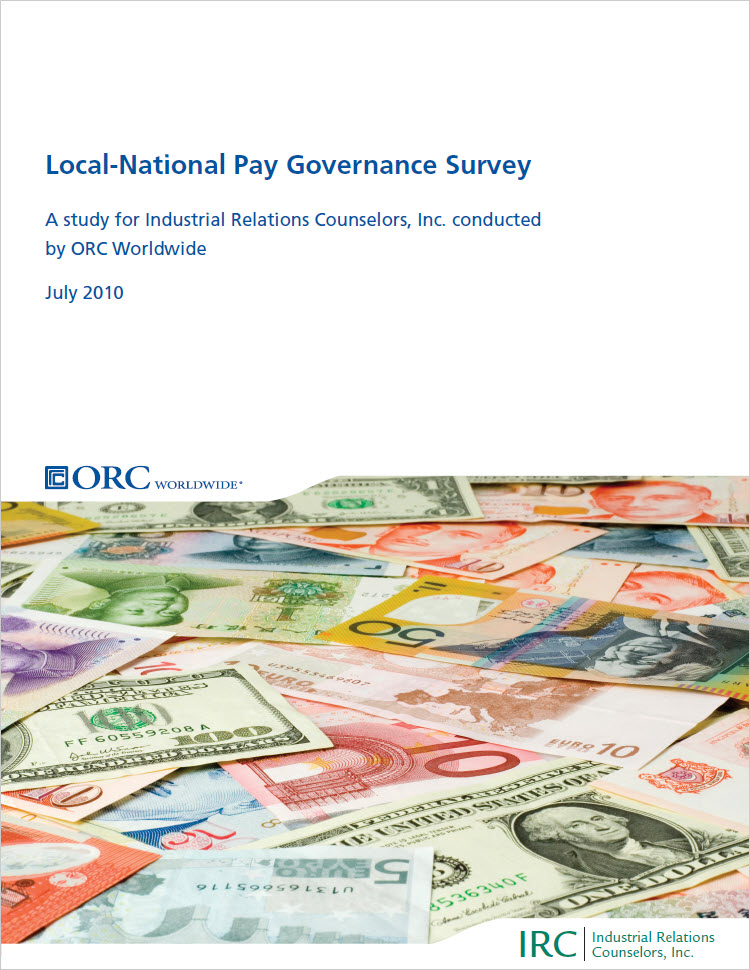Tighter fiscal control and more-limited compensation budgets are forcing HQ to increase its oversight, if not the outright control of local pay practices. However, there is no clear understanding of the specific local-national pay management approaches currently employed across an array of companies and industries or how they are changing. Clarity is also lacking around which approaches are more successful or if, in fact, the effectiveness of any individual approach correlates to an organization’s size or geographic scope. Further, is a company’s pay governance practice tied to its operating model? While there may be a presumed correlation between the extent an organization is globally integrated and the degree to which there is HQ pay governance, we do not have sufficient evidence demonstrating it to be true.
The goal of the study on Local-National Pay Governance that ORC Worldwide conducted for Industrial Relations Counselors, Inc. was to understand the current practices of international organizations with respect to decisions and processes for managing pay outside of the headquarters country. The study also sought greater understanding of how these practices may be changing.
In particular, the study looked at the policies and practices of multinationals to:
- Verify the standardized models of local-national pay management to define
the prevailing practices that occur along the spectrum. - Assess whether there is an appetite for organizations to increase its
governance of the local-national pay review process and, if so, identify the
causes of this desire. - Where change may have already occurred in some organizations, gain insight
into the role that communication played in the effectiveness or limitations of
the change process. - Explore the degree to which technology tools (i.e., compensation
management systems) can facilitate the governance process. - Identify whether or not there is a correlation between approaches used and
the size, breadth and relative maturity of the companies that employ them.

